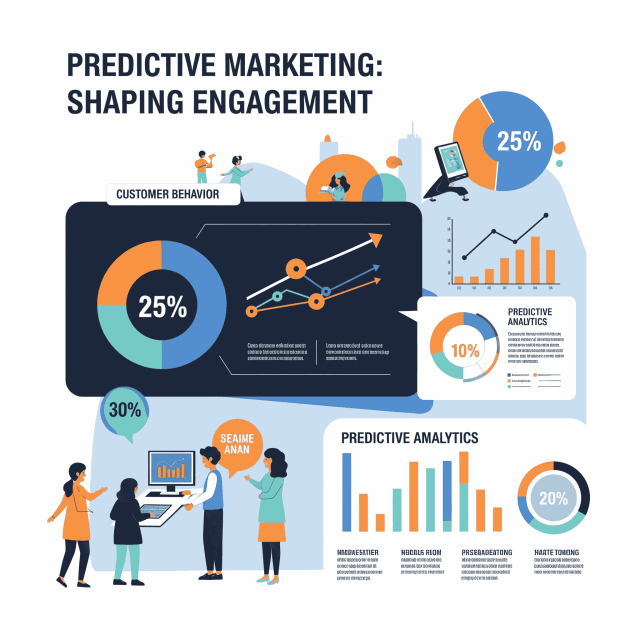In an age where data reigns supreme, businesses are continuously seeking innovative ways to connect with customers. One of the most transformative methodologies to emerge is predictive marketing, a technique that leverages data analytics, machine learning, and consumer behavior insights to forecast future buying patterns. By harnessing these insights, brands can tailor their strategies to enhance customer engagement like never before.
What is Predictive Marketing?
Predictive marketing refers to the use of historical data and advanced analytics to predict future customer behavior. It encompasses various techniques, including data mining, machine learning algorithms, and statistical modeling. The goal is to anticipate what customers want and when they want it, enabling businesses to create personalized experiences.
The Role of Data in Predictive Marketing
Data is the foundation of predictive marketing. With the advent of big data, companies have access to vast amounts of information about customer preferences, purchasing history, and even online behavior. This data can be collected from various sources, including:
- Social Media: Interaction patterns on platforms like Facebook and Instagram provide insights into preferences and behaviors.
- Website Analytics: Metrics such as page views and click-through rates help identify which products or services are of interest.
- Customer Surveys: Direct feedback reveals customer needs, pain points, and preferences.
By synthesizing this data, businesses can create predictive models that provide actionable insights.
Enhancing Customer Engagement Through Personalization
One of the primary benefits of predictive marketing is its ability to enhance customer engagement through personalization. By understanding individual customer journeys, brands can tailor their messages and offers. Here are a few ways this is accomplished:
1. Targeted Campaigns
Rather than adopting a one-size-fits-all approach, businesses can segment their customers into distinct categories based on predicted behaviors. This allows for highly targeted marketing campaigns, ensuring that the right message reaches the right audience at the optimal time.
2. Product Recommendations
E-commerce platforms, for instance, utilize predictive algorithms to suggest products based on past purchases and browsing behavior. This not only increases the likelihood of additional purchases but also enhances the customer experience by making shopping more convenient.
3. Timely Engagement
Predictive marketing can help identify the best times to engage customers. By analyzing past interactions, businesses can determine when a customer is most likely to respond positively to an email, social media ad, or text message, thus maximizing engagement rates.
4. Anticipating Needs
By predicting customer needs before they even articulate them, businesses can create a proactive approach to customer service. For instance, if data indicates that a customer frequently purchases coffee every month, a brand might recommend related products, like coffee filters or a new coffee maker, before the customer realizes they need them.
The Impact of Artificial Intelligence
Artificial Intelligence (AI) is a game-changer in predictive marketing. Advanced algorithms can analyze data at an unparalleled speed and accuracy, identifying trends and patterns that may go unnoticed by human analysts. Moreover, AI can automate the process of customer segmentation and personalization, making it easier for businesses to implement predictive marketing strategies effectively.
Challenges in Predictive Marketing
Despite its considerable advantages, predictive marketing is not without challenges. Issues such as data privacy concerns, the need for high-quality data, and the potential for algorithmic bias can hinder its implementation. It is essential for businesses to approach predictive marketing ethically, ensuring they prioritize customer trust and transparency.
The Future of Customer Engagement
As technology evolves, so too will predictive marketing. The integration of new data sources, such as IoT devices and real-time analytics, is expected to refine predictive models further. Moreover, as consumers become more tech-savvy, they will likely expect even greater personalization and engagement from brands.
In conclusion, predictive marketing is reshaping the landscape of customer engagement. By utilizing data and advanced analytics to anticipate customer behavior, businesses can create personalized experiences that foster loyalty and increase revenue. As we move further into the digital age, embracing predictive marketing will be crucial for organizations looking to stay ahead of the curve and cultivate meaningful customer relationships. Unlock your future through the power of predictive marketing, and watch your brand thrive.









